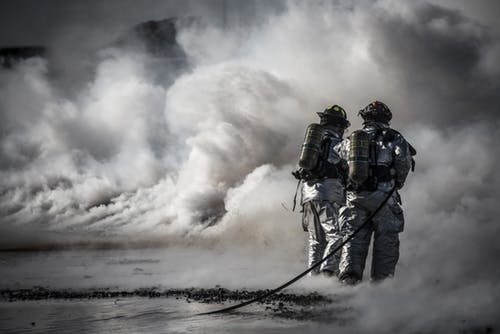Water damage can strike no matter how prepared and proactive you may be. Regardless of the cause, homeowners must know how to manage the water damage and understand the potential health risks it poses. With knowledge and effective strategies, you can protect your home and health.
Read on to learn about water damage, its health risks, and how to protect both your property and well-being.
Common Causes of Water Damage
Floods
Flooding is a well-known cause of water damage in homes. Whether due to heavy rainfall, a storm surge, or a broken dam, floods can cause catastrophic damage to your home and belongings.
Storms
Heavy storms can cause water damage through torrential rains, high winds, and hail. These extreme weather events can weaken your home’s exterior, causing leaks and structural damage.
Leaking Pipes, Appliances, and Roofs
Old, damaged, or improperly installed plumbing, appliances, and roofs can lead to leaks and water damage. Regularly inspecting and maintaining these areas can help to prevent damage.
Sewage Backup
A sewage backup can cause even more devastating damage due to its unsanitary nature. This type of water damage is not only a hazard to your home but also a severe health risk.
Health Risks Associated with Water Damage
Mold Hazards
Mold poses one of the most significant health risks related to water damage. It can cause respiratory issues, allergies, and even severe infections, especially in people with weakened immune systems. Mold typically thrives in damp environments and can grow within 24-48 hours after water damage.
Bacteria and Other Pathogens in Contaminated Water
Contaminated water from flooding or sewage backup can contain dangerous bacteria and pathogens. Coming into contact with this water can lead to illness and infection. It’s crucial to have homes professionally cleaned and disinfected after water damage to protect against health risks.
Exposure to Hazardous Chemicals
Water damage can result in chemical hazards, especially if the water source is contaminated. Floodwaters, for instance, can pick up hazardous materials and bring them into your home. Those exposed to contaminated water should seek medical attention immediately to prevent further harm.
Preventing Water Damage in Homes
Regular Maintenance of Plumbing, Appliances, and Roofs
Preventing water damage starts with proper home maintenance. Regularly inspect and repair any issues with your plumbing, appliances, and roofing to avoid unexpected leaks and water intrusion.
Creating Barriers Against Flooding
For homes in flood-prone areas, barriers such as sandbags, flood barriers, or landscape features can help protect your property from disastrous flooding.
Installing Water Alarms and Sump Pumps
Installing water alarms and sump pumps can provide early warnings of potential water damage, allowing you to take action before the damage becomes too severe.
Immediate Actions During Water Damage
Turning Off Electricity and Gas Supply
One of the essential steps homeowners should take when faced with water damage is turning off electricity and gas supplies to prevent even more dangerous situations like fires or electrocution.
Safeguarding Valuable Items
When safe to do so, move valuable items and important documents out of harm’s way to minimize the damage and loss.
Documenting the Damage for Insurance
Take photos and videos of the water damage to support your insurance claims, and keep an inventory of all affected items.
Water Restoration Companies
In many cases, water damage calls for professional water restoration. Services like water damage restoration in Hoboken can help you salvage your property from further damage, ensuring everything is adequately cleaned, disinfected, and restored. Investing in professional water restoration can prevent long-term health risks and further structural damage to your property.
Along with water damage, many homeowners may face damage from fires and other disasters. A professional fire restoration company in Jersey City can help restore properties to their pre-damage condition and provide critical guidance.
Remediation Professionals
Mold growth and other hazardous conditions often demand quick action. Experienced professionals offering services like quick response mold removal can help ensure your home is free from mold and other harmful contaminants, keeping you and your family safe from potential health hazards.
Dealing with Insurance during Water Damage Recovery
Assessing Your Insurance Coverage
Homeowners should familiarize themselves with their insurance policy’s coverage for water damage. Understanding the extent of your coverage helps you navigate the claims process with greater ease and confidence.
Filing a Timely Insurance Claim
When faced with water damage, file a claim as soon as possible. Insurance companies often have specific deadlines for filing claims, and any delay could jeopardize your coverage.
Working with Insurance Adjusters
Insurance adjusters play a vital role in documenting the damage and estimating the repair cost. Maintain open communication and provide them with any documentation or information they may require to support your claim.
Final Words
Water damage is an unwelcome event that can have devastating effects on both your home and your health. Knowledge of its potential causes and associated health risks can help homeowners make well-informed decisions and take appropriate action in the face of such a crisis. By focusing on prevention, swift response, and expert restoration, you stand the best chance in guarding your property and well-being against the perils of water damage.


